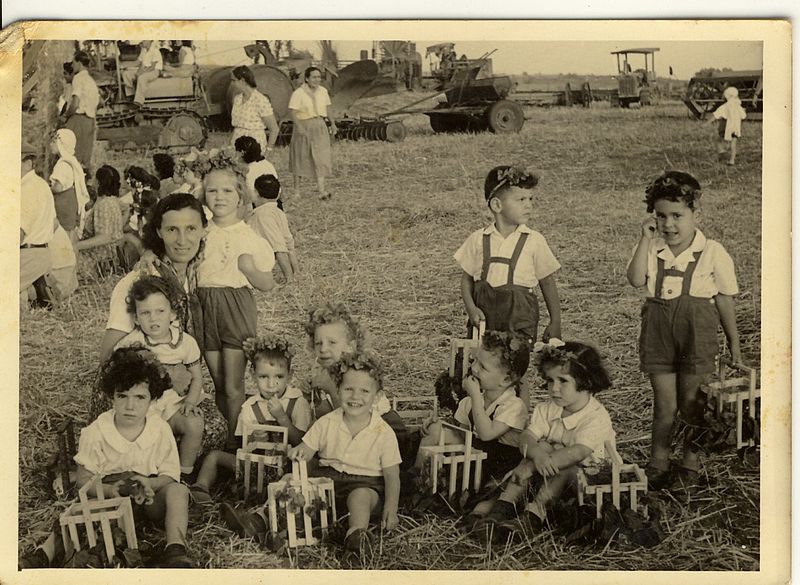Shavuot, which comes from the Hebrew meaning “weeks,” was originally a celebration of the first barley harvest, which took place about seven weeks—a week of weeks—after planting. For this reason, in Biblical sources it is sometimes called a “Festival of Weeks” or “Feast of Weeks.”
That’s not the only Biblical name for Shavuot, however. Biblical sources also call this early harvest celebration “Festival of the Harvest” (Chag Ha-Katzir) and “Day of the First Fruits” (Yom Ha-Bikkurim).
The early Greek translation of the Hebrew Bible, the Septuagint, refers to Shavuot as Pentecost, which means “fifty”—another reference to the idea of counting out seven times seven days (7×7 = 49). This is why some people refer to Shavuot as Pentecost, though mostly that name refers to a different Christian holiday celebrated in the same season.
Classical rabbinic sources sometimes refer to Shavuot as Atzeret, which implies that it is the conclusion of a festival season. Just as the holiday of Shemini Atzeret is a capstone to the Sukkot festival, Shavuot (Atzeret) may be thought of as a capstone to the Passover/Omer festival season.
With your help, My Jewish Learning can provide endless opportunities for learning, connection and discovery.
Note that all of the Biblical names for Shavuot—Feast of Weeks, Festival of the Harvest, Day of the First Fruits—describe a purely agricultural festival. It was not until later that this early summer agricultural festival became an occasion to celebrate the giving of the Torah on Mount Sinai. Our current liturgy reflects this added meaning, referring to Shavuot as “The Season of the Giving of the Torah” (Z’man Matan Torateinu).



